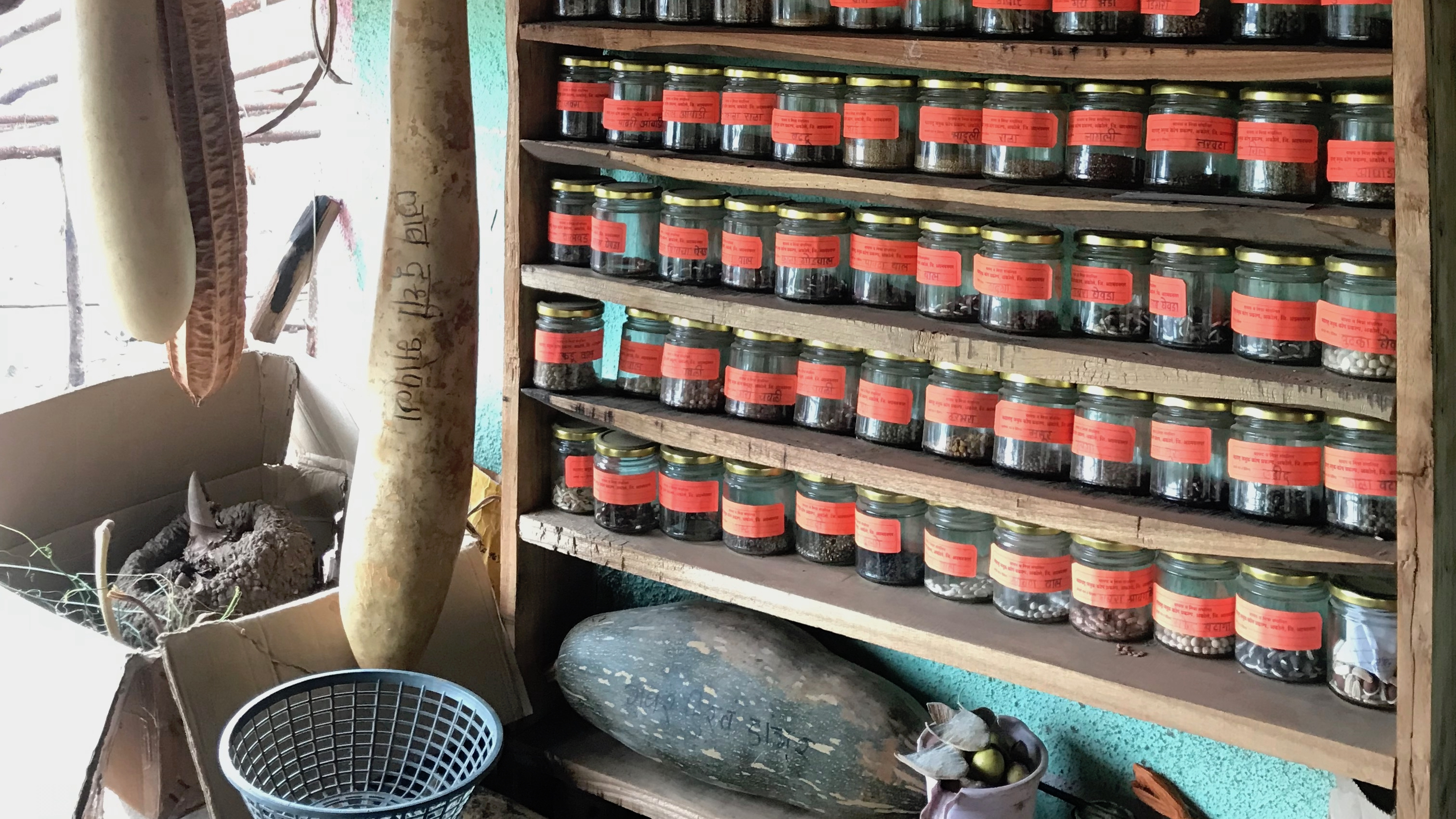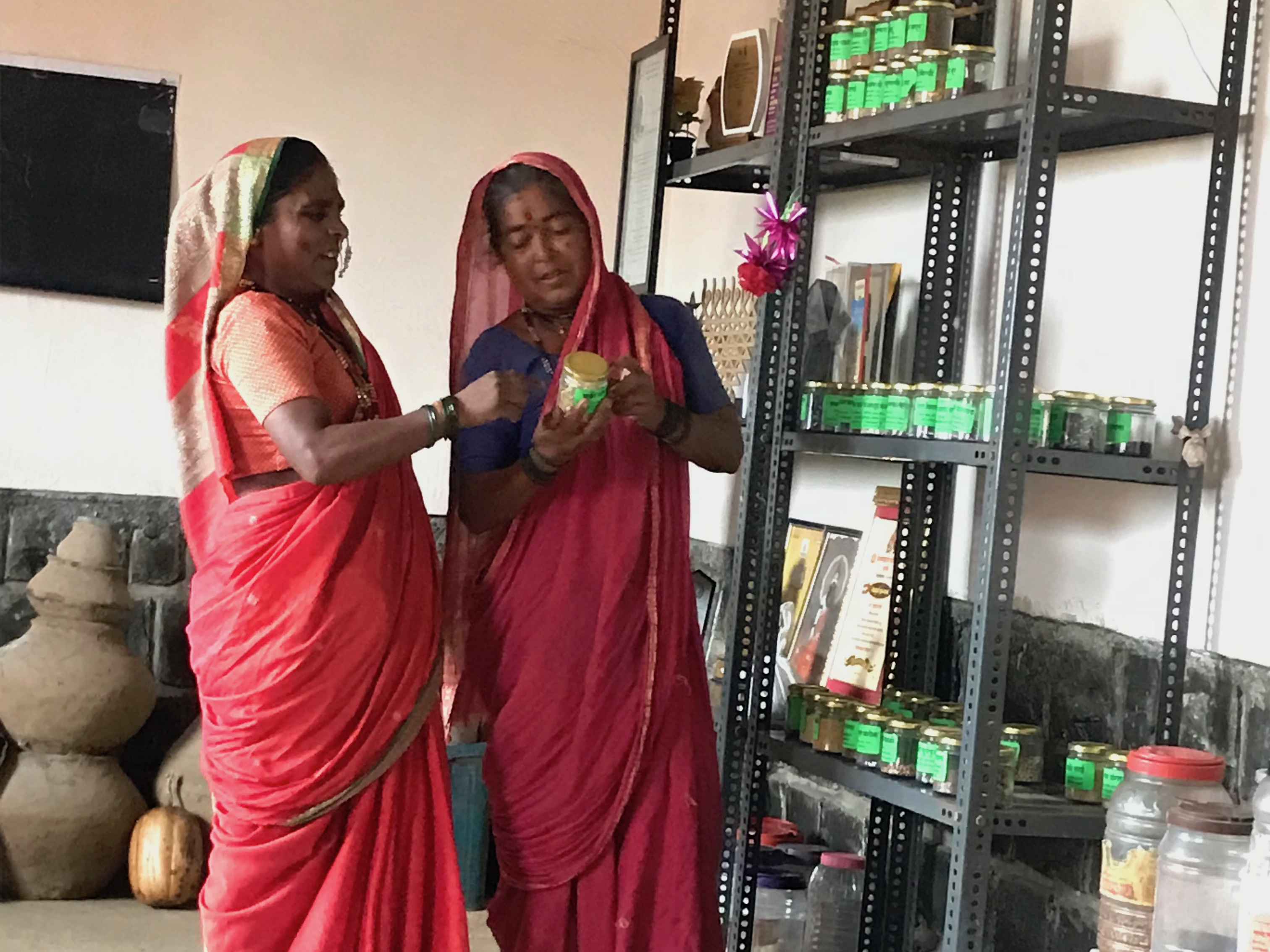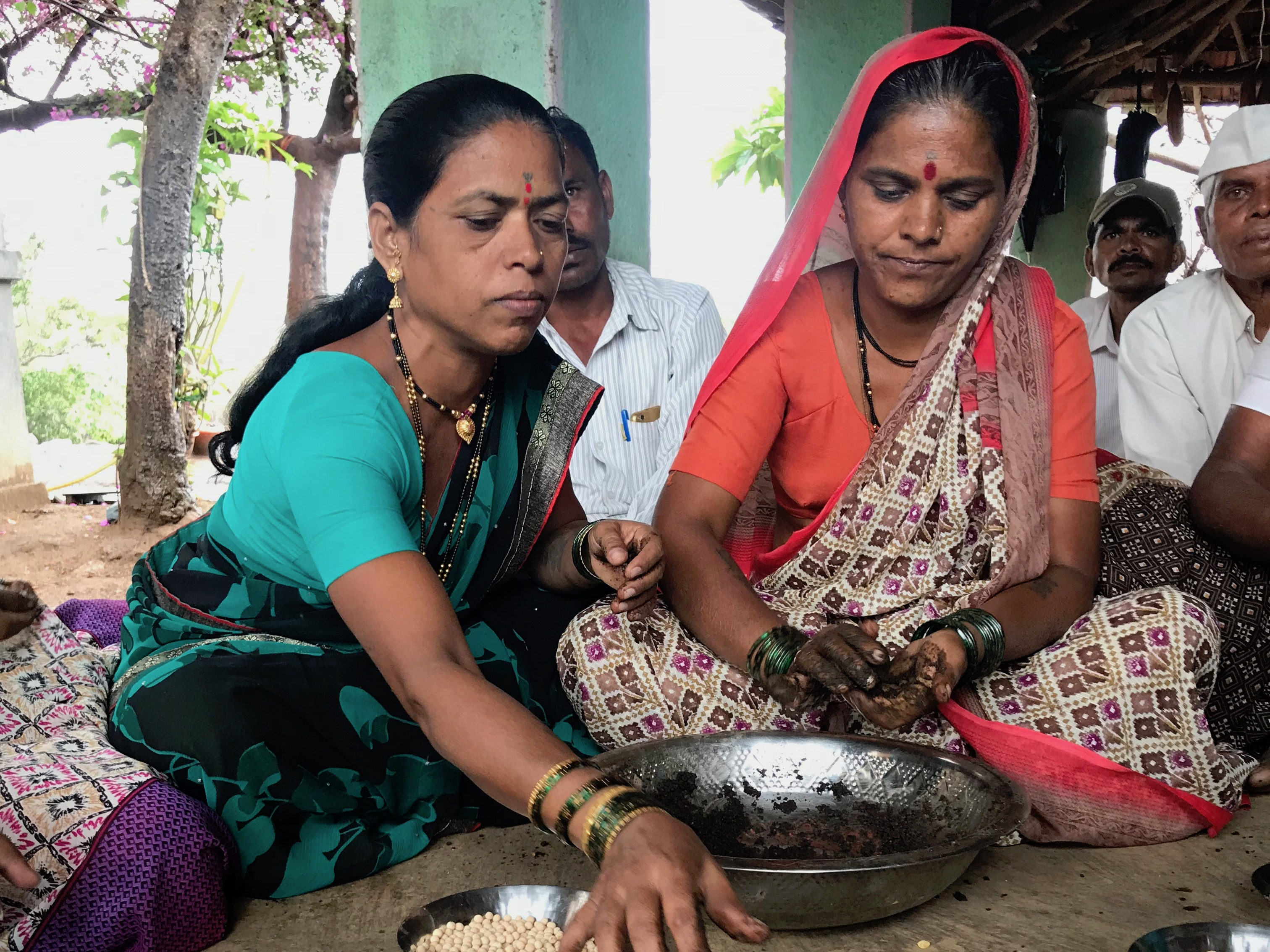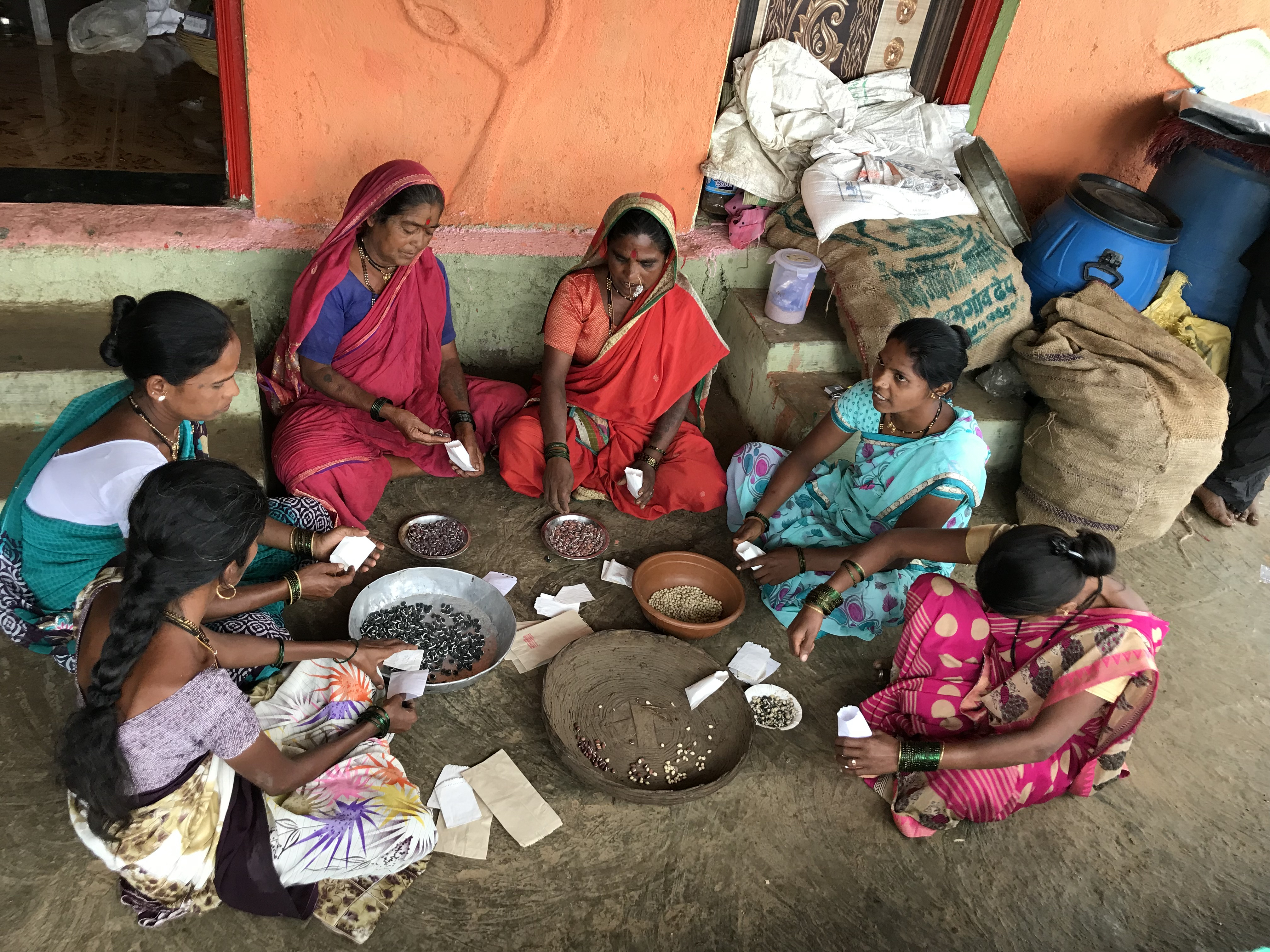

Seeds being stored in the seed bank. /CGTN Photo
Just a few weeks back, farmers from western state of Maharashtra in India sang songs to hail the rain: "Oh, rain! Oh, rain! Fall on our land, Oh, Rain! Refresh our weary land, oh, rain!"
Now the smell of rain drops on the dry land that has brought smiles to the faces of residents of Kombhalne in the western state of Maharashtra in India. With the arrival of the monsoons, farmers in this village have become busy. It's time to the sow seeds that they protected for last year. There is an indigenous seed bank in the village from where they source seeds.
Rahibai Soma Popere, a female farmer, runs a seed bank with 116 varieties of local seeds of 54 different crops. Popularly known as the seed mother of India, Popere began a movement to save native seeds to protect her family from diseases. It's been 20 years since when she started protecting native varieties of seeds.

Rahibai(R) showing her seed collection to another woman farmer. /CGTN Photo
"I told my children that crop from hybrid seeds are making our family weak so we should stop sowing them. We then stopped using hybrid seeds and started using the local varieties which did require any chemicals or fertilizers and we got a good yield," explained Popere.
Inspired by her, many farmers in the western state of Maharashtra are dumping hybrid seeds in favor of indigenous varieties. Rahibai's traditional techniques of saving indigenous variety of seeds are being replicated in many parts of this region in western India.
She supplies seedlings as well and pushes farmers to shift to local varieties. Curious farmers visit Popere's seed bank to buy seeds and to know more about the traditional techniques.

Women farmers being trained in local techniques to save native seeds. /CGTN Photo
"The organisms in the soil, which are friends of farmers, get destroyed due to the use of chemicals and fertilizers. For indigenous seeds we don't need to use any chemicals and that helps organisms to enrich our soil," said Namdev Narayan, a farmer.
Learning from her many villages around this area have started their own seed bank.
"I run my own seed bank. I go around the village motivating women to use their own seeds or from the seed bank for better health. People are slowly realizing that the organic local varieties are beneficial for their health. We have saved local varieties of rice also, which we are growing in this area," said Mamatbai, another female farmer.

A group of women farmers sorting seeds for sale. /CGTN Photo
The list of seed savers is becoming longer and more and more local varieties of vegetables and grains are finding their way into the fields. Female farmers are taking a lead in the revival of crop diversity and wild food resources. Taking forward Popere's idea various organizations are working with farmers to promote traditional technologies to conserve seeds.
Jitin Sathe is an agronomist with BAIF in the district of Ahmednagar. He and his team, are training women farmers to take this movement forward.
"We realized that women farmers work in the fields from morning till night and they have a huge contribution in farming. So we decided to train them and involve them in taking forward traditional techniques," he said.
Popere's work is being recognized and she has won many awards. In March this year, the government of India honored her with Nari Shakti awards for her efforts and contribution in saving the seeds.

Copyright © 2018 CGTN. Beijing ICP prepared NO.16065310-3
Copyright © 2018 CGTN. Beijing ICP prepared NO.16065310-3